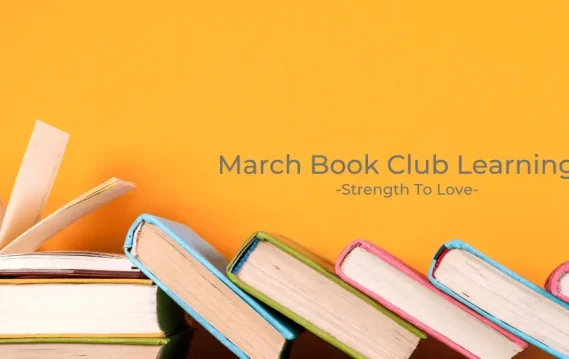Following Martin Luther King (MLK) Day, which was on January 18th, the DE&I Committee organized a book club to read Martin Luther King Jr.’s Strength to Love. Some of the mutual goals of the participants were to learn, expand their knowledge on racial injustice, understand MLK’s position on nonviolence activism, and share their new learnings. It was clear from the beginning that the book would make an impact on all of us. We quickly learned that MLK had a way of connecting all the dots and presenting relevant points throughout his sermons. Religion, fear, experiences, and opportunities affect how people react to certain situations.
MLK acknowledges a “tough mind with a tender heart” is a combination to cultivate change. A tough mind allows people to have their own opinion, yet have a tender heart empathizes. He often talked about “loving your neighbor” but the question was “what neighbor?” Are our neighbors the ones who look, believe, and live like us? Why can’t we all be neighbors as humans? One’s economical, religious, educational, or ethnic background should not be a reason to be a “stranger.” However, our society has been dividing people for centuries. In each chapter, we explored MLK’s personal experiences and philosophies and realized how relevant his sermons were to today’s conversations and struggles. After so many years, our society is still striving for racial justice and fighting against segregation- maybe not as obvious as the 1950s, but certainly still relevant.
The issue is the more we hate the deeper we go into a dark place of adverse actions causing forgiveness to be nearly impossible. Although forgiving seems difficult (at times), it can lead to opportunities, growth, love, and happiness. It starts with someone deciding to “love an enemy”. THEN we learn about the power of hope, which helps people in the most difficult circumstances survive. The book club discussed how we have the power to crush another person physically and mentally, but we were reminded that no one can crush our soul. This caused the members of our book club to dig a little deep.
If the human tendency was to ask themselves if someone or a group needed help would it be more like, “…if I stop to help this man, what will happen to me?” When the terrible and brutal acts from the police in the mishandling of Mr. George Floyd happened, the audience questioned why no one stopped the police officer? Or why none of the three police officers who were there stopped these terrible acts from occurring? This unfortunate event combined with the scenario about human tendencies brings up so many important questions. Like if you saw a woman being harassed on the street would you make an effort to stop or would you turn your head in another direction? How would you approach discrimination while casually walking your dog? These are tough societal questions to ask, but what kept us grounded while exploring these questions were MLK’s words about loving our neighbor and forgiveness. He says, “forgiveness is not an occasional act; it is a permanent attitude”.
As we concluded our book club, we left with a mutual feeling that MLK has given us an operating system to conduct ourselves with love, morals, faith, and to seek knowledge. We learned more about what MLK stood for and left with a deeper commitment to our societal obligation. Our obligation to unapologetically take a stance against racism and inequality. With a deep level of respect and acknowledgement for MLK’s nonviolent efforts. As readers, we agreed to continuously practice our learnings with discipline to adopt an empathetic way to react and act against social injustice! After four sessions of discussions and consequently reaching this valuable commitment, we left our book club with a sense of personal growth and empowerment.
We leave you with these beautiful lines from the book:
- Give people a fair chance and a decent education, and they will save themselves.
- At the center of nonviolence stands the principle of love.
- Since every crisis has both its dangers and its opportunities – We should be wise as serpents, and harmless as doves.
- Ask yourself, “How may I transform this liability into an asset?
- Returning hate for hate multiplies hate
- If Lincoln had hated Stanton both men would have gone to their graves as bitter enemies. But through the power of love Lincoln transformed an enemy into a friend.
- PAUL’S LETTER TO AMERICAN CHRISTIANS You are called to be the salt of the earth. You are to be the light of the world.
- In a real sense, all life is interrelated. All men are caught in an inescapable network of mutuality, tied in a single garment of destiny. Whatever affects one directly affects all indirectly.
- Be wise as serpents, and harmless as doves
Our next book// March’s book club laid the foundation for our next book as we plan to read, Meaning of Life by Victor Frankel, an Austrian neurologist, psychiatrist, philosopher, author, and Holocaust survivor.



